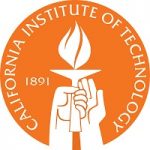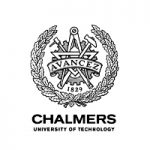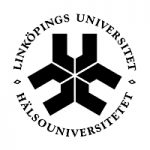项目介绍
Caltech has a reputation as a world-class research university, and it is no exaggeration to say that much of this reputation is based on the quality of its graduate students. The Electrical Engineering Department at Caltech is no exception: its bright and motivated graduate students collaborate with its professors in their research efforts and make it one of the top Electrical Engineering departments in the country.
An application for admission can be completed electronically through the Graduate Studies Office website. Admission will be granted only to a limited number of students of superior ability, and application should be made by the posted deadlines. Completed applications are due in the Graduate Office between December 15 and January 15. Please refer to the Graduate Office website for specific deadlines. Some options will review an application received after the deadline, but that applicant may be at a disadvantage in the allocation of financial assistance or in the priority for admission. In general, admission to graduate standing is effective for enrollment only at the beginning of the fall term. The California Institute of Technology encourages applications from members of groups underrepresented in science and engineering, including women. Graduate admissions is covered by Caltech’s Nondiscrimination Policy. For more information on this policy, please refer to page 70. Applicants will automatically be considered for financial aid; no additional application is required.
To be admitted to graduate standing, an applicant must in general have received a bachelor’s degree representing the completion of an undergraduate course in science or engineering equivalent to one of the options offered by the Institute. He or she must, moreover, have attained such a scholastic record and present such recommendations as to indicate fitness to pursue, with distinction, advanced study and research. Admission sometimes may have to be refused solely on the basis of limited facilities in the option concerned.
Please visit the Caltech Graduate Studies website for downloadable forms, important dates, and further information about the admissions process. Apply now!
Aims and Scope of the Graduate Program
Award of the Bachelor of Science degree may be followed by graduate study leading to the Master of Science degree in electrical engineering, and the more advanced degrees of Electrical Engineer or Doctor of Philosophy. Because admission to graduate studies in electrical engineering at Caltech is extremely competitive, the Admissions Committee attempts to select those applicants it judges both best qualified and best suited for the graduate program. The Graduate Record Examination (GRE) will not be required or considered for admission to the Ph.D. or M.S. degree programs in Electrical Engineering.
Degree of Doctor of Philosophy
As a rule, applicants who wish to undertake research work leading to a degree of Doctor of Philosophy in electrical engineering are admitted initially only for the MSEE. They are, however, evaluated according to additional criteria, the most important of which is the applicant’s interest in and potential for research in one of the areas described below. The statement of purpose required as part of the application should clearly address this match. Considerable weight is also given to the opinions expressed in the applicant’s letters of recommendation.
During the Ph.D. applicant’s master’s degree year, evaluation continues. It is based in part on performance in courses and in part on a one-hour oral presentation scheduled early in the second quarter. As the year progresses, the electrical engineering faculty get to know the student, and the student makes contact with the professor in his or her area of research interest. Upon acceptance into a research group, the student begins research work and defers receiving the master’s degree until formal admission into the Ph.D. program. In the event that the Adviser is not an EE faculty member, the student should meet with the EE Option Representative and develop an oversight plan to monitor progress. Before the end of his or her second academic year of graduate study, the student normally takes the Ph.D. qualifying oral examination. This must, however, be done no later than the end of the third academic year.
Ph.D. applicants who already hold a master’s degree in electrical engineering from another U.S. institution may be admitted directly to the Ph.D. program, but must provide sufficient information to obtain advance acceptance into a research group.
Financial aid available to a Ph.D. applicant includes teaching assistantships and fellowships. TA duties consist of grading papers or lab instruction but not classroom lecturing. A fellowship may be supplemented by a teaching assistantship, and either or both include a full tuition scholarship. Tuition scholarships alone are not available. If financial aid is not requested, or if the box on the application form labeled “willing to come without aid’’ is checked, information on the source of funds for each year of intended graduate study must be included.
Candidacy
To be recommended for candidacy for the doctor’s degree, the applicant must satisfy the following requirements (and pass the Ph.D. qualifying oral examination) no later than the end of the third academic year:
- Complete 18 units of research in his or her field of interest.
- Obtain approval of a course of study consisting of at least 135 units of advanced courses in electrical engineering or the related subjects approved by the Ph.D. adviser, with at least 54 units of letter-graded EE courses numbered 100 or above (not counting EE 291). Only up to 27 units in research (e.g., EE 291) may be counted in this total. No more than 30 units of pass/fail grades may be counted toward this requirement. The courses taken to satisfy the math requirement below and courses taken to fulfill the Master of Science degree requirement may be included to satisfy this requirement. Units toward this requirement are not transferable from other schools.
- Pass 27 units of mathematics courses, as approved by the student’s research adviser, with letter grade no lower than C.
- Pass a qualifying oral examination covering broadly the major field. Students are strongly encouraged to do this before the end of the second year of residency
Ph.D. Committee
The Ph.D. qualifying oral exam and the final defense exam are conducted by committees that are set up by the student and approved by the option representative. Members of these Ph.D. committees also serve as second or backup mentors in cases where such additional advising and problem solving are appropriate.
Thesis and Final Examination
The candidate is required to take a final oral examination covering the doctoral thesis and its significance in and relation to his or her major field. This final examination will be given no less than two weeks after the doctoral thesis has been presented in final form, and before its approval. This examination must be taken at least four weeks before the commencement at which the degree is to be granted.
Advising and Thesis Supervision
Periodic meetings between the advising faculty and the graduate student are an integral part of the Ph.D. program. These meetings should be at sufficiently frequent intervals, as determined by the student and adviser. Students are also encouraged to meet with other members of the Ph.D. committee, the option representative, the executive officer, or Caltech’s ombudsperson to discuss problems relating to satisfactory progress.
Subject Minor
A student majoring in another option at the Institute may elect a subject minor in electrical engineering. He or she must obtain approval from the electrical engineering faculty of a course of study containing at least 45 units (over the 100 level) of advanced courses with an EE listing (excluding 291). At least 36 of these should be for letter grades no lower than C. Freshman classes cannot be counted toward this.
联系方式
电话: (626) 395-6811相关项目推荐
KD博士实时收录全球顶尖院校的博士项目,总有一个项目等着你!






